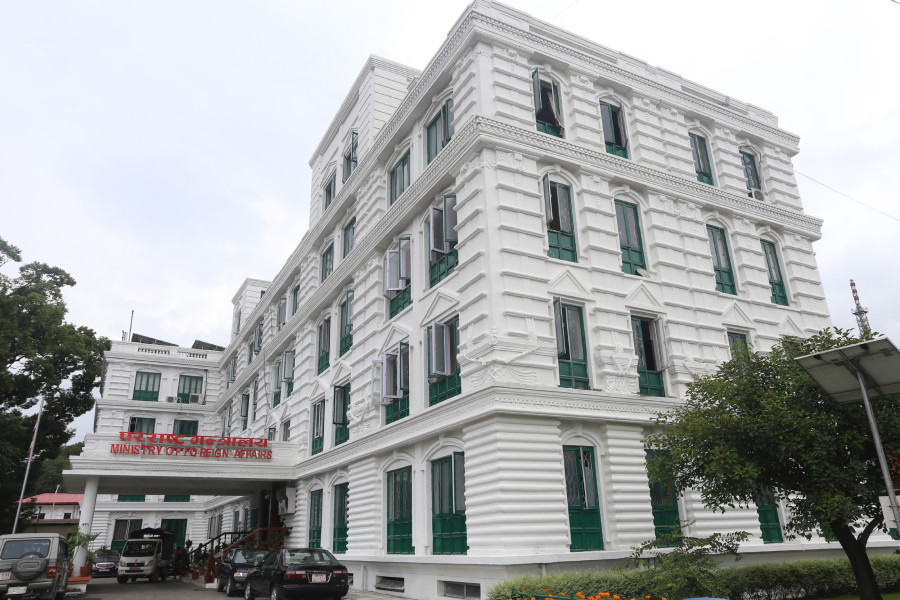Editorial
To open an embassy or not
Some Nepali embassies have been opened without a proper study of their relevance.
For the developing countries, especially those facing issues such as poverty, serious income inequality and a battered economy, embassies and diplomats seem more like unnecessary extravagance than something politically essential. This makes it difficult to justify the allocation of limited government funds to maintain embassies. Perhaps this is the reason why the Finance and Foreign ministries are on a collision course over the number and maintenance of missions abroad. While the Finance Ministry, applying a strict financial lens, advocates reducing the number of embassies as it is costing the state a lot of money, the Foreign Ministry believes that diplomacy is more about form and symbolism, and establishing or maintaining an embassy is a clear sign to the host government of a commitment to deepen bilateral relations.
Nepal has six consulate generals and 33 embassies including three permanent missions to the United Nations—in New York, Geneva and Vienna. The current budget of the Foreign Ministry is Rs2 billion which is 0.51 percent of the total national budget. Most of the funds are allocated for renting offices, chanceries and residences for the Nepali missions abroad. Nepal spends around Rs800 million annually on the operation of its embassies around the world.
It is difficult to pick one argument over the other as the position held by both the ministries seem legitimate to some extent. But the government needs to ensure that wherever it plans to open embassies or has already established them, their relevance is reviewed periodically. Simply put, embassies are opened in the pursuit of the national interest. If the already established missions have not been doing much to further this basic purpose, then it would be prudent to reallocate these resources to other places that can work better.
For instance, Nepal has embassies in Spain and Brazil. The amount of trade Nepal does with these two countries is negligible. Moreover, the number of Nepalis residing in these countries is also very low to warrant embassies there. In that case, it makes more sense to test the water first and have honorary consuls by employing local citizens instead of maintaining a full-blown embassy. This way, Nepal will still be maintaining bilateral relations, but on a smaller scale which will cost the government less money. As it is, with the rise of economic diplomacy, more countries are opting to open trade offices and innovation hubs rather than embassies.
Embassies were once considered to be the country's eyes and ears abroad. But some Nepali embassies have been opened without a proper study of their relevance, putting a huge financial burden on the state coffers. Public funds may be in short supply; therefore, taxpayer money must be used effectively. Foreign diplomatic missions as individual chancery sites need to be assessed properly. Another option is to have non-resident ambassadors who visit the assigned country a few times annually. For example, this practice has been used to great effect by Malta and Singapore.
***
What do you think?
Dear reader, we’d like to hear from you. We regularly publish letters to the editor on contemporary issues or direct responses to something the Post has recently published. Please send your letters to [email protected] with "Letter to the Editor" in the subject line. Please include your name, location, and a contact address so one of our editors can reach out to you.




 16.12°C Kathmandu
16.12°C Kathmandu














